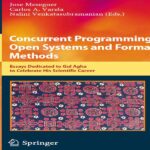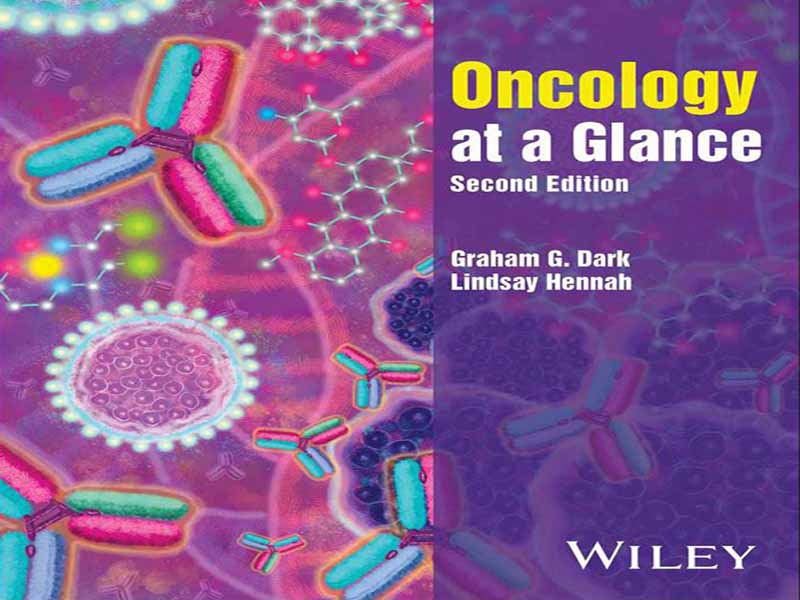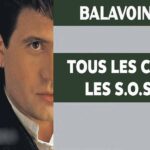- عنوان کتاب: Oncology At A Glance
- نویسنده: Graham G. Dark, Lindsay Hennah
- حوزه: انکولوژی
- سال انتشار: 2025
- تعداد صفحه: 156
- زبان اصلی: انگلیسی
- نوع فایل: pdf
- حجم فایل: 9.51 مگابایت
انکولوژی رشتهای است که تعدادی از زمینههای علمی را در بر میگیرد. این رشته از نظر پیشرفت در رویکردهای درمانی، در لبه فناوری قرار دارد. این یک چالش انگیز و فکری است که نه تنها درمانهای امروزی را ارائه دهیم، بلکه درمانهای فردا را نیز تحقیق و توسعه دهیم. تحقیقات در تخصصها ریشه دارد و ریشه در بخشهای دانشگاهی دارد. ارائه خدمات شیمیدرمانی و پرتودرمانی با کیفیت بالا یک هدف سیاسی مهم است و دولت سرمایهگذاری مالی قابل توجهی در گسترش خدمات سرطان در بریتانیا انجام داده است. برای دانشجوی پزشکی دوره کارشناسی، انکولوژی میتواند طاقتفرسا باشد و اغلب مواجهه با بیماران مبتلا به سرطان میتواند در برنامه درسی کارشناسی کاملاً پراکنده باشد. اکثر دورههای دانشجویی بر فرآیندهای تشخیصی تمرکز خواهند کرد، زیرا بیماران مبتلا به سرطان به شرکتهای پزشکی عمومی و جراحی مراجعه میکنند، احتمالاً به عنوان پذیرش حاد یا از طریق بیماران سرپایی با علائم مختلف. سایر دانشکدهها دورههای خاصی را در بخش انکولوژی ارائه میدهند و این متن قرار است دانش اصلی را برای پشتیبانی از چنین تجربه یادگیری فراهم کند. عمل بالینی انکولوژی، کاربرد پایهای از علوم از جمله آناتومی، برای تفسیر تصویربرداری رادیولوژیک؛ فیزیولوژی، برای تأثیر یک بیماری چند سیستمی؛ داروشناسی، برای طراحی، ارائه و نظارت بر درمانهای سیستمیک ضد سرطان؛ زیستشناسی مولکولی، برای توسعه اهداف درمانی مناسب و درک مکانیسمهای سرطانزایی، خطر ژنتیکی و مقاومت در برابر درمان؛ زیستشناسی سلولی، فرآیند متاستاز، تهاجم عروقی و ریزمحیط تومور و چگونگی تأثیر آن بر نتیجه و رویکردهای درمانی؛ آسیبشناسی، برای تشخیص ویژگیهای یک بیماری که میتواند بر تمام سیستمهای بدن تأثیر بگذارد. بنابراین، سرطانشناسی کاربرد بالینی دانش علمی است که زیربنای بخش زیادی از پزشکی بالینی است و این کار را به شیوهای بسیار مبتنی بر شواهد انجام میدهد. این امر مستلزم درک واضح، رویکردی دقیق برای بررسی بیمار برای دستیابی به تشخیص و ارتباط مؤثر با بیمار، خانواده او و سایر افراد در تیم چند رشتهای است. چالشهای مکرری وجود دارد زیرا گاهی اوقات تحقیقات به پاسخ قطعی منجر نمیشوند و با این حال یک برنامه مدیریتی روشن برای منفعت بیمار مورد نیاز است. برای بسیاری، سرطانشناسی یک تخصص افسردهکننده به نظر میرسد و با این حال پاداش زیادی برای کسانی که در مراقبت از بیماران پیچیده دخیل هستند، وجود دارد. رضایت از بهبود بالینی پس از چالش فکری تشخیص صحیح، برنامهریزی درمان مناسب، با توجه به شرایط بیمار و بیماری او، انتقال درک بیمار برای توضیح آنچه احتمالاً در آینده اتفاق میافتد و فرصتی برای پرداختن به نگرانیها و ترسهای او، پاداشی برای بسیاری از پزشکان درگیر در مدیریت بیماران با مشکلات پیچیده، به ویژه مبتلایان به سرطان، است. ریشههای انکولوژی پزشکی به عنوان یک تخصص، در مدیریت بدخیمیهای خونشناسی و کودکان نهفته است. این رشته به عنوان یک تخصص کوچک تحقیقاتی آغاز شد و تحقیقات بالینی همچنان از ویژگیهای مهم این تخصص است. در طول 20 سال گذشته، پیشرفتهای عظیمی در مدیریت پزشکی سرطان، به ویژه در توسعه درمانهای تومورهای جامد شایع، رخ داده است. امروزه، انکولوژی پزشکی یک تخصص بالینی گسترده است. این رشته تضمین میکند که برای سرطانهای شایع، درمانهای پیشرفته با اثربخشی اثبات شده، به صورت ملی، در چارچوب مراقبتی متناسب با بیمار به عنوان یک فرد ارائه شود. انکولوژیستهای پزشکی به طور فزایندهای بیماران را در ابتدای سفر سرطان خود برای بررسی درمانهای کمکی و نئوادجوانت میبینند. آنها به عنوان بخشی از یک تیم چند رشتهای کار میکنند و قادر به مشاوره در مورد تمام جنبههای درمان انکولوژیک، از جمله ادغام آن با جراحی و رادیوتراپی و همچنین داشتن مهارتهای لازم برای ارائه درمان پزشکی تخصصی هستند. انکولوژی بالینی از کشف پرتودرمانی و پرتودرمانی درمانی ناشی شده است، اما اکثر پزشکان شیمیدرمانی را نیز انجام میدهند. در سالهای اخیر پیشرفتهای تکنولوژیکی قابل توجهی در ارائه درمان پرتودرمانی با مدولاسیون شدت، فوتون درمانی و رادیوتراپی استریوتاکتیک وجود داشته است و برخی از مشاوران فقط بر ارائه رادیوتراپی تخصصی تمرکز دارند. درمانهای جدید ضد سرطان به طور مداوم توسط پزشکانی که در رابط بین کلینیک و مبانی علمی دانش کار میکنند، در حال توسعه هستند. بنابراین فرصتی برای افراد وجود دارد تا به عنوان یک دانشمند بالینی، با علاقه به تحقیقات انتقالی که آزمایشگاه علمی را با کلینیک مرتبط میکند، یک حرفه دانشگاهی را توسعه دهند. این کتاب برای دانشجویان کارشناسی است که در طول آموزش بالینی و دورههای کارآموزی خود با بیماران مبتلا به سرطان روبرو میشوند. در برخی از مراکز ممکن است …
Oncology is a discipline that embraces a number of scientific fields. It is at the cutting edge of technology with regard to developments in therapeutic approaches. It is a stimulating and intellectual challenge to not only deliver the therapies of today but to research and develop the treatments of tomorrow. Research is embedded within the specialties and reflects the origins within academic departments. The delivery of high quality chemotherapy and radiotherapy services is an important political target and there has been considerable financial investment by the government in expanding cancer services in the UK. For the undergraduate medical student, oncology can be overwhelming and often the exposure to patients with cancer can be quite fragmented in the undergraduate curriculum. Most student rotations will focus on the diagnostic processes as patients with cancer present to general medical and surgical firms, possibly as acute admissions or via outpatients with a variety of presenting symptoms. Other schools will provide specific rotations in the oncology department and this text is to provide the core knowledge to underpin such a learning experience. The clinical practice of oncology is the application of a foundation of sciences including; anatomy, to interpret radiological imaging; physiology, for the impact of a multisystem disease; pharmacology, to design, deliver and monitor systemic anticancer treatments; molecular biology, for the development of viable targets of therapy and to understand the mechanisms of carcinogenesis, genetic risk and resistance to therapy; cell biology, the process of metastasis, vascular invasion, and microenvironment of the tumour and how this can affect outcome and approaches to therapy; pathology, to recognise the features of a disease that can affect all systems of the body. Oncology is therefore the clinical application of the knowledge of science that underpins so much of clinical medicine and does so in a very evidence- based manner. This requires clarity of understanding, a fastidious approach to investigation of the patient to obtain a diagnosis and effective communication with the patient, their family and others within the multidisciplinary team. There are frequent challenges as sometimes the investigations do not produce a definitive answer and yet a clear plan of management is required for the benefit of the patient. For many, oncology seems like a depressing specialty and yet there is so much reward for those involved in the care of complex patients. The satisfaction of demonstrating clinical improvement after the intellectual challenge of getting the right diagnosis, planning the right treatment, given the context of the patient and their disease, having communicated understanding to the patient to explain what is likely to happen in the future and having had opportunity to address their concerns and fears, is a reward for many clinicians involved in the management of patients with complex problems, especially those with cancer. The origins of Medical Oncology as a specialty lie in the management of haematological and paediatric malignancies. It began as a small research orientated specialty and clinical research remains an important feature of the specialty. Over the last 20 years, enormous developments have taken place in the medical management of cancer, particularly in the development of therapies for common solid tumours. Today, Medical Oncology is a broadbased clinical specialty. It ensures that for common cancers, stateof- the- art therapies of established efficacy are delivered on a national basis, within a framework of care, tailored for the patient as an individual. Medical oncologists increasingly see patients at the beginning of their cancer journey for consideration of adjuvant and neoadjuvant therapies. They work as part of a multidisciplinary team and are able to advise on all aspects of oncological treatment including its integration with surgery and radiotherapy as well as having the skills to deliver specialist medical therapy. Clinical Oncology arose from the discovery of radiation and therapeutic irradiation but most practitioners also deliver chemotherapy. In recent years there have been considerable technological advances in the delivery of radiation treatment with intensity modulation, photon therapy and stereotactic radiotherapy and some consultants focus on delivering specialised radiotherapy only. New anticancer treatments are constantly in development by clinicians that are working at the interface between the clinic and the scientific foundations of knowledge. There is therefore opportunity for individuals to develop an academic career as a clinician scientist, with an interest in translational research that interfaces the scientific laboratory with the clinic. This book is aimed at undergraduate students that will encounter patients with cancer throughout their clinical training and junior rotations. In some centres there may be minimal opportunity to study within the oncology departments as clinical experience may be gained with the teams that refer patients to a multidisciplinary team, rather than with the oncologists that deliver the subsequent treatment. In some medical schools, students will have opportunity to undertake a student selected component (SSC). This is a period that allows personal learning outcomes to be defined and for individual students to explore either the depth or breadth of oncology practice. During one such period an informal discussion about learning resources resulted in the concept and idea of this book. A student focus group was used to identify the topics for inclusion and considerable attention was given to what is important for an undergraduate. Therefore some topics are left out by intention as they were not relevant to such an audience.
این کتاب را میتوانید بصورت رایگان از لینک زیر دانلود نمایید.
Download: Oncology At A Glance





































نظرات کاربران